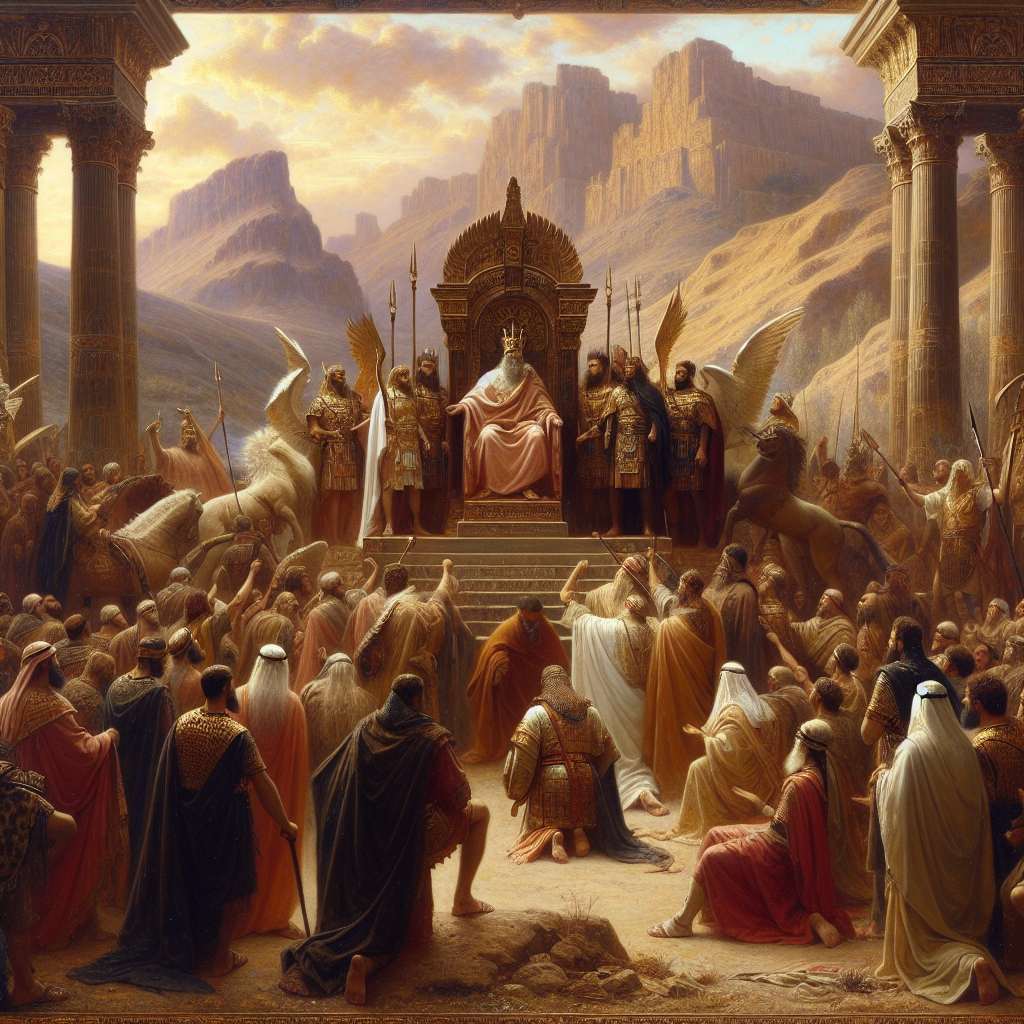The Hardest High Place: Lessons from 2 Kings 15-16
12/08/2024

2 Kings 15-16 Analysis
Link to bible verses
Key Verses
- 2 Kings 15:3: "He did what was right in the eyes of the Lord, just as his father Uzziah had done, but the high places were not removed; the people continued to offer sacrifices and burn incense there." (NIV)
- 2 Kings 15:9: "He did evil in the eyes of the Lord, as his father Menahem had done. He did not turn away from any of the sins of Jeroboam son of Nebat, which he had caused Israel to commit." (NIV)
- 2 Kings 15:37: "At that time the Lord began to reduce the size of Israel. Pekah son of Remaliah took from him Ijon, Abel Beth Maakah, Janoah and Kedesh in Gilead, Galilee and all Gilead, the territory of Gad and the territory of Reuben and Manasseh, from Aroer by the Arnon Gorge through Gilead to Bashan." (NIV)
- 2 Kings 16:3: "He walked in the ways of the kings of Israel, as the house of Ahab had done, for he married a daughter of Ahab. He did evil in the eyes of the Lord, just as the house of Ahab had done." (NIV)
Themes
- Faithfulness and Disobedience: These chapters contrast the faithfulness of some kings, like Jotham, with the disobedience of others, such as Pekahiah and Pekah. This highlights the importance of adhering to God's commands.
- God's Judgment and Mercy: The narrative illustrates God's judgment on Israel for their sins, while also showing His mercy and willingness to forgive and restore when they return to Him.
- The Impact of Leadership: The actions of kings significantly influence the spiritual state of the nation, emphasizing the importance of godly leadership.
Historical Context
- Time Period: The events in 2 Kings 15-16 occurred between approximately 750 and 735 BCE.
- Political Climate: This period saw the rise of the Assyrian Empire, posing a significant threat to both Israel and Judah. The political instability is marked by frequent changes in leadership and external pressures from Assyria.
- Significant Events: The chapters detail the reigns of various kings in Israel and Judah, including Pekahiah, Pekah, Jotham, and Ahaz, amidst a backdrop of political turmoil and idolatry.
Cultural Context
- Jewish Customs: The high places mentioned in the text were sites of idolatrous worship, reflecting the ongoing struggle with idolatry in Israel and Judah.
- Social Structures: The interactions between kings, prophets, and the people illustrate the social hierarchy and power dynamics of the time.
Etymology
- "High Places" (בָּמָה - bamah): These were elevated sites used for idolatrous worship, underscoring the need for spiritual purity.
- "Evil" (רָע - ra): This term indicates moral wickedness and disobedience to God's commands.
Put it into Practice
- Faithfulness in Leadership: Leaders should strive to follow God's commands and set a good example for their people.
- Personal Accountability: Individuals must take responsibility for their actions and seek forgiveness when they stray from God's path.
- Mercy and Forgiveness: Believers should reflect God's mercy and forgiveness in their interactions with others.
Questions
- How do the actions of leaders in your life influence your spiritual growth?
- What are some areas in your life where you need to seek forgiveness and return to God's path?
- How can you demonstrate God's mercy and forgiveness to those around you?
